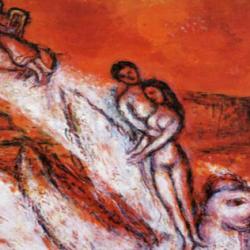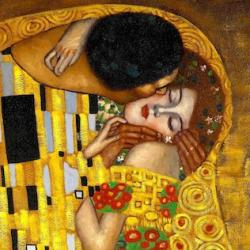The erotic intensity of the Song is, these days, an argument against allegorizing. Walsh rightly argues the opposite: “Desire for an absent lover pulsates throughout eight chapters in a heady mixture of glee, frustration, exhaustion, and surrender. Experientially, readers would be able to relate to these descriptions with the desires they themselves harbor for love, harvests, or the most absent object of all, God. In this biblical thirst for otherness, the supernatural other cannot help but be recalled, if only as a phantom memory . . . . A Song devoted to the impassioned longing for an absent lover . . . cannot help but resonate with any latest desire a reader of the Bible feels for God.”
Which raises a question: What assumptions about sex are behind the common opinion that the Song is only an erotic poem, only a celebration of human sexuality and marriage, full stop? (Tremper Longman: “There is absolutely nothing in the Song of Songs itself that hints of a meaning different from the sexual meaning.”) When commentators express such opinions, are they already implicitly assuming a materialist view of sexuality? Are they coming to the text with a presupposition that sex has no inherent transcendent meaning? To put it the other way round: Doesn’t sex itself hint at a meaning different from the sexual meaning?











